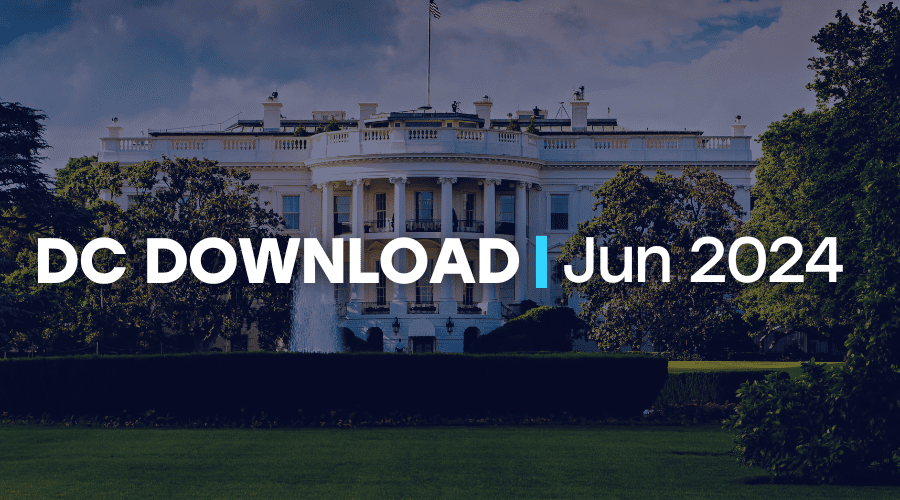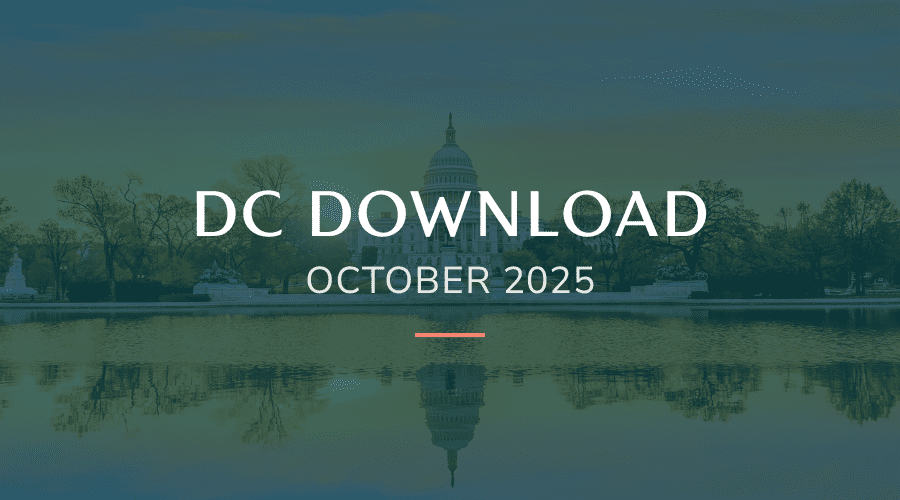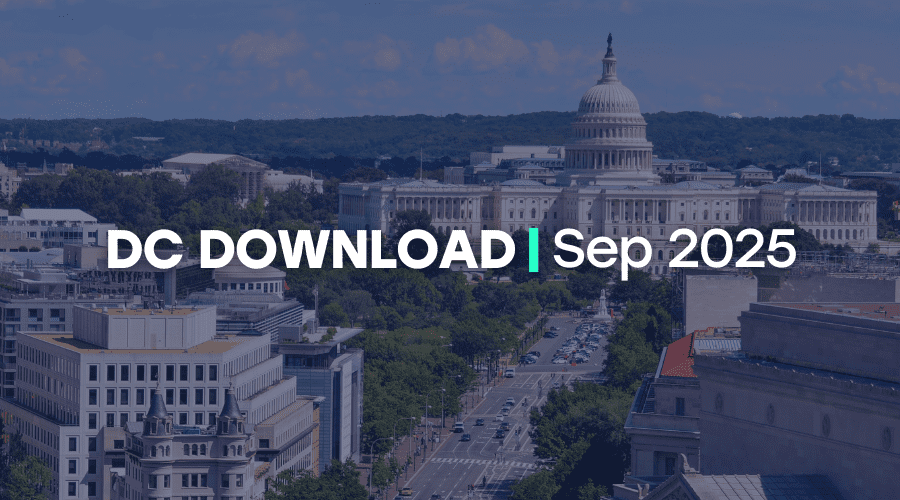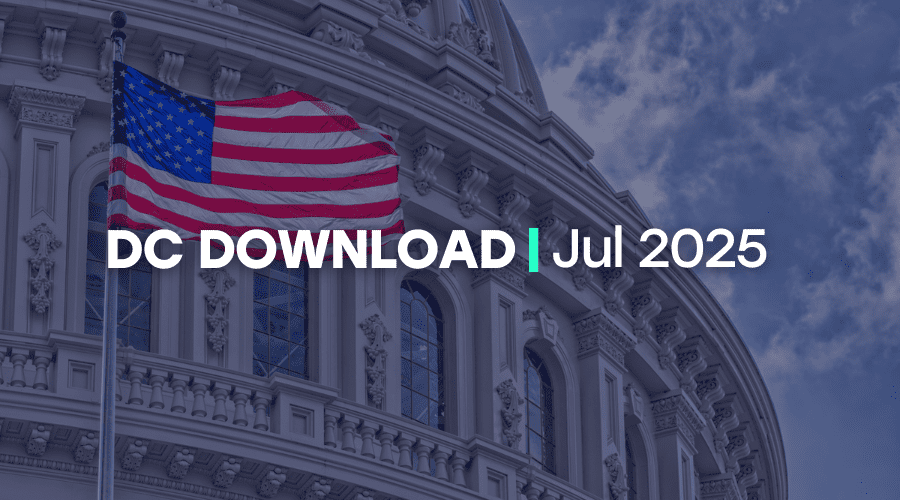June is National Candy Month and Independent Sector celebrated by working with Congress to sweeten the deal for the charitable sector! From whipping up appropriations legislation to working toward ensuring nonprofit workforce data are timely and accessible, our lawmakers and IS were hard at work this month to make sure that the sector remains “confectionately” supported, though with many issues still in the air, the proof will be in the pudding. If you have missed any of this policy sweetness, here is your monthly recap of the top highlights for the charitable sector.
Annual Report on Philanthropy Published
Giving USA published its Annual Report on Philanthropy on June 25. First published in 1956, this report is the longest running, most comprehensive report on philanthropy in the United States. As anticipated, this report showed that charitable giving failed to keep pace with inflation, dropping 2.1 percent after adjusting for inflation; this marks the second consecutive year that the Giving USA report found a decline in charitable giving. According to the report, charitable giving from individuals dropped 2.4 percent, and the share of overall giving from individuals continued to decline with a slight decrease to 67.2 percent; by comparison in 2013, individual donors accounted for 73 percent of overall giving. The report wasn’t all declining percentages, in fact, all except three causes experienced gains in contributions received. The most significant cause-specific giving increases went to foundations, public-society benefit, and education at 10.8 percent, 7.2 percent, and 6.7 percent respectively, while giving to individuals, international affairs, and religion experienced decreased contributions of 20.5 percent, 1.6 percent, and 1 percent respectively.
Although charitable giving levels have not kept up with inflation or returned to pre-COVID highs, the numbers in 2023 are far more encouraging than the steep declines seen in 2022.
Federal Appropriations Update
Throughout June, the House Committee on Appropriations was at work drafting and marking up the various Fiscal Year (FY) 2025 government spending bills. To date, the House Appropriations Committee has marked up six FY25 spending bills including:
- Defense
- Financial Services and General Government
- Homeland Security
- Legislative Branch
- Military Construction, Veterans Affairs, and Related Agencies
- State, Foreign Operations, and Related Programs
Congress has until the end of FY24 (September 30, 2024) to pass the FY25 appropriations bills or a continuing resolution to keep the government open. It is too early to say whether there is a threat of a government shutdown at the end of the fiscal year; IS will keep monitoring the progress of the appropriations bills as they work their way through Congress and to the President’s desk.
Fearless Foundation Court Case
On June 3, the United States Court of Appeals for the Eleventh Circuit ruled that the American Alliance for Equal Rights has standing to sue the Fearless Foundation, an Atlanta-based foundation, claiming that their grant program for Black women entrepreneurs is racially discriminatory. Additionally, the court ruled that the Fearless Foundation grant program must remain halted under a preliminary injunction while the case proceeds in court. “The court’s decision threatens the right of the charitable sector to address urgent, unmet needs and to strengthen communities nationwide in a diversity of ways,” said Independent Sector President and CEO Dr. Akilah Watkins in a joint press release from Independent Sector and the Council on Foundations. While this is not the ruling Independent Sector was hoping for, it is important to note that the June 3 ruling only addressed the matter of standing and did not settle the merits of the underlying case.
In December, Independent Sector, along with the Council on Foundations, filed an amicus brief calling on the court to dismiss this lawsuit and rule in line with the First Amendment that philanthropies and individuals have a constitutional right to donate to charitable causes that align with their values. IS will continue to monitor this case and report on updates as it works its way through the judicial process.
Nonprofit Workforce Data Funding in FY25 Appropriations
On June 13, Independent Sector sent a letter co-signed by 29 other national nonprofit organizations to the leadership of the Senate and House Appropriations Subcommittee on Labor, Health and Human Services, Education, and Related Agencies (LHHS) in support of nonprofit workforce data. Specifically, the letter urged them to provide funding in the LHHS for the appropriations bill for the Bureau of Labor Statistics (BLS) Office of Employment and Unemployment Statistics to incorporate nonprofit organizations in the Quarterly Census of Employment and Wages (QCEW). Currently, the BLS only releases nonprofit wage and employment data every five years, with the latest data released in 2017. This means public officials and nonprofit employers are forced to make decisions about organizational strategy and workforce projections without timely or accurate data. The requested funding increase would enable the BLS to add sector specific nonprofit data in future QCEW reports.
One of the most powerful tools to impact change is legislators hearing from their constituents. Forty-two states currently have at least one member of their Congressional delegation serving on the Senate or House Appropriations Committee. IS urges you to contact the appropriator(s) in your state — particularly those serving on the Labor, Health, and Human Services Subcommittee — to urge them to include $4-8 million in the FY25 Labor, Health and Human Services, Education, and Related Agencies appropriations bill for the BLS Office of Employment and Unemployment Statistics to incorporate nonprofit organizations in the QCEW.
Travis Swanson is the Government Relations Manager at Independent Sector



